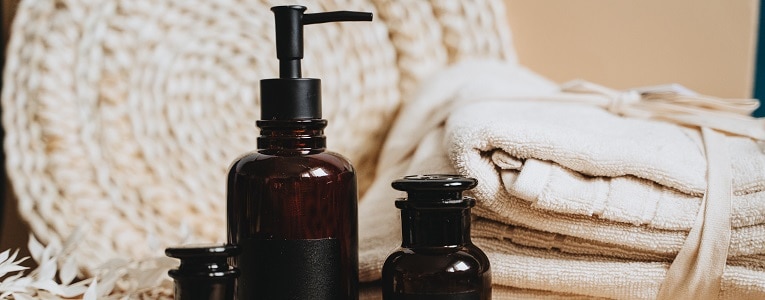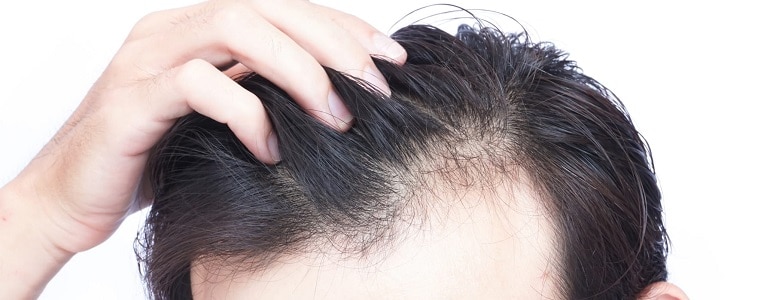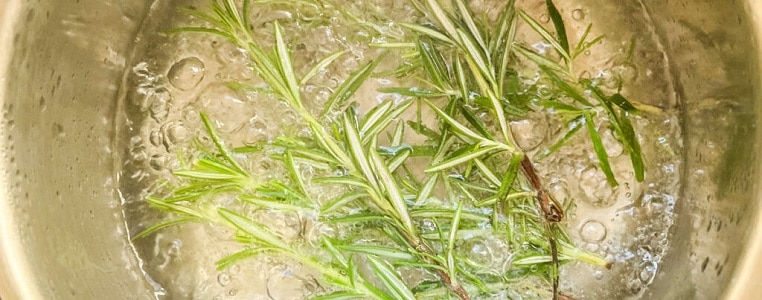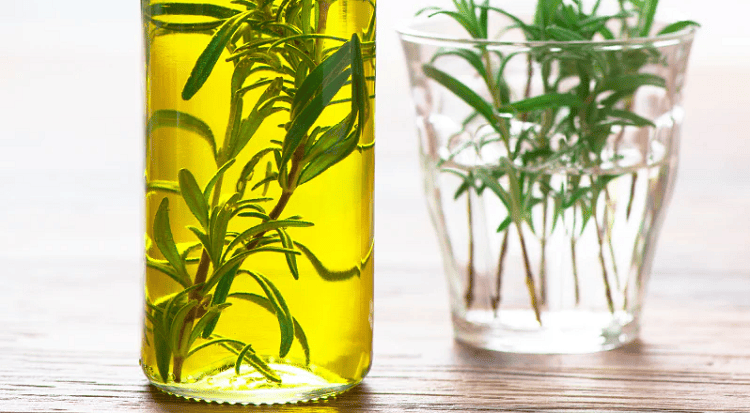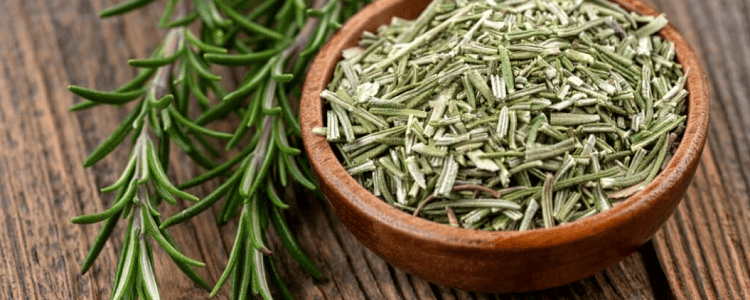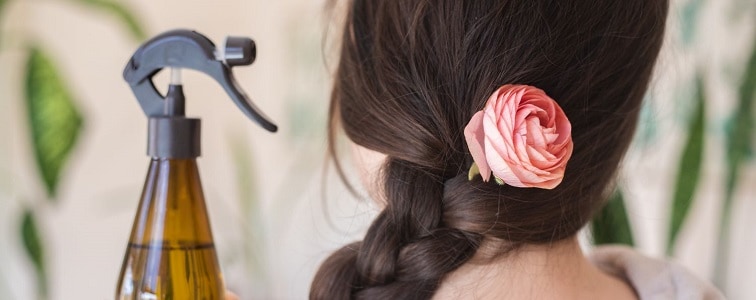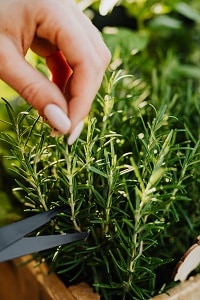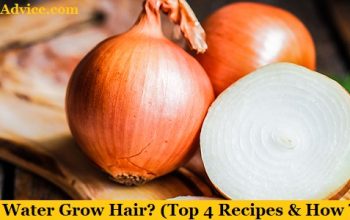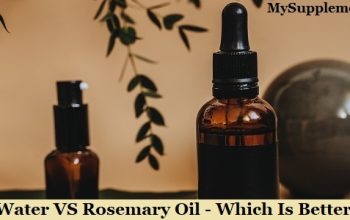
Are you thinking of using rosemary water for hair growth?
Or do you want to know how effective it is for hair loss and growth?
Well, in this article, we will discuss various aspects related to rosemary water:
- how rosemary water works
- how to prepare rosemary water at home
- how to use rosemary water
Are you ready to discover more about this inovative hair remedy?
Note. This article is based on my own research on rosemary water for hair growth.
Rosemary Water For Hair (In A Nutshell)
Are you wondering how good is rosemary water for hair growth?
Well, the answer is simple.
Rosemary water is indeed effective when it comes to hair growth.
In fact, it can also help you deal with certain types of hair loss.
Here are some of the advantages that rosemary water has:
- promotes hair growth
- strengthens your hair
- improves blood circulation on the scalp
- has antioxidant properties
- has anti-inflammatory properties
- is helpful in case of pattern hair loss
In fact, rosemary water can work in the case of thinning hair or hair loss due to hormonal changes.
Yet, is it more potent than rosemary oil?
Not really! Rosemary oil is more concentrated than rosemary water and consequently, more effective.
However, rosemary water has a lower risk of side effects.
Moreover, most people can use it, no matter the type of hair or scalp.
Another advantage is that you can prepare rosemary water at home.
The recipes that you can try are the following:
- Fresh Rosemary Water
- Dry Rosemary Water
- Oily Rosemary Water
So pick the one you like most and do not forget to give it a go!
I'm sure your hair will thank you if you do that!
How Rosemary Water Works
Rosemary water has become a popular remedy for hair growth.
In fact, many people started using it and sustain that it is indeed helpful.
Yet, before discussing its efficiency, let me ask you something.
Do you know what rosemary water is?
Well, itțs the result of boiling rosemary leaves in distilled water for several hours.
Recently, it gained a new name, “the new rice water“.
Why? Because it is becoming as popular and useful as rice water.
Returning to its efficiency, let's discuss its mechanism of action:
- stimulates hair growth
- decreases inflammation on the scalp
- improves circulation to the hair follicles
- strengthens the hair
- helps you deal with certain types of hair loss
- improves overall scalp health
More specifically, how does rosemary water actually work?
Well, as you've seen, rosemary water can improve circulation to the hair follicles.
By doing that, it also promotes hair growth and strengthens your hair.
That's why rosemary water is also good for certain types of hair loss:
- thinning hair
- pattern hair loss
- hair loss due to hormonal changes
In fact, rosemary is known as a DHT blocker.
It is true that rosemary water is not very concentrated, but it can still help you – especially if you are experiencing hair loss due to hormonal changes.
Moreover, as you've seen rosemary – water has anti-inflammatory properties.
That means you can also use rosemary water to treat scalp irritation and dandruff.
So rosemary water is indeed a product that you need.
Rosemary Water VS Rosemary Oil
Rosemary water and rosemary oil are similar in many ways.
The herb that is at the bases of the two products is rosemary, after all.
However, they are made in different ways.
For that reason, their concentrations are also different.
In other words, rosemary oil is more concentrated and more potent than rosemary water.
Here's how rosemary oil works:
- boosts hair growth
- acts as a DHT blocker
- works as an antioxidant [1]
- increases blood flow to the scalp
As you can see, rosemary oil works pretty much like rosemary water.
Moreover, it is also a great treatment for certain types of hair loss: [2]
- androgenic alopecia [3]
- alopecia areata
- telogen effluvium
Since rosemary oil is so effective, it gained the name “natural minoxidil“.
Thus, it surely is a remedy that you have to try, especially if you suffer from hair loss.
However, rosemary water can also be helpful.
That's why I recommend you try them both.
Yet, keep in mind that rosemary oil triggers more side effects than rosemary water.
So if you have sensitive skin – make sure you do a patch test before using any of these two.
Does this mean that rosemary water can also cause side effects?
That's right! However, chances to experience them are pretty low:
- both rosemary oil and rosemary water can cause allergic reactions
- the symptoms are burning, redness, itching, irritation
Now you know the essential aspects regarding rosemary oil and water.
Each of them is useful in its own way, as you could see.
So which one is the most suitable for you and your needs?
If you picked rosemary water, then let me tell you how to prepare it at home.
Thus, in the following sections, I will present to you three easy recipes for rosemary water.
Ready to improve your knowledge?
Recipe 1 – Fresh Rosemary Water
Why fresh rosemary water? The other recipes are not fresh?
Actually, this is not the reason why this recipe is called Fresh Rosemary Water.
In fact, it is called like this because in order to prepare it you need fresh rosemary.
Do you happen to have fresh rosemary at home?
I hope your answer is yes – because you will definitely need it.
If not, you can always buy it from a supermarket, that's for sure.
So did you get your fresh rosemary? Then make sure you don't eat it.
We needed it for something else – for your haircare routine.
Here's what you need for this recipe:
- 5 rosemary springs
- 2 cups distilled water
- a spray bottle
Now, let's have a look at the instructions:
- Put the springs of rosemary in a pot and add distilled water until it covers them.
- Bring the mix to a boil and let it simmer for 15-20 minutes.
- The water should turn yellow.
- After that remove the concoction from the fire and let it steep for 30 minutes.
- Now the water will become darker and rosier.
- Strain the mix and pour it into a spray bottle.
This is the basic recipe for Fresh Rosemary Water. Yet, you can adjust it to your liking.
For example, if you want it to be more concentrated, you can add more springs of rosemary water.
Also, you can let the mixture simmer even for one to two hours.
In this way, your rosemary water will become more potent.
Moreover, to obtain this result you can let the mixture steep for more than 30 minutes as well.
Now that you know all those things, let me tell you how to use the product you've prepared:
- Part your hair with a comb.
- Spray the rosemary water on your scalp a couple of times throughout the day.
- Massage it into your asking for 2-3 minutes.
- In this way, your hair will grow faster and healthier.
After you use rosemary water, make sure you store it in the fridge.
In this way, you can benefit from it for a longer time.
Also, I have to say that this amount of rosemary water should last one to two weeks.
Then, should you make more water at a time?
Well, I don't advise you to do so. It is better to use fresh rosemary water, right?
So when should the results start appearing?
It depends on your hair. Yet, do not worry if they do not appear after a couple of weeks.
Sometimes it takes 2-3 months to have visible results.
Patience is key here, remember!
Now, what do you think? Is Fresh Rosemary Water worth trying?
Recipe 2 – Dry Rosemary Water
As you probably guessed already, this recipe is made with dry rosemary leaves.
Now, is this recipe easier?
Well, considering that you don't need fresh rosemary – yes, you can say so.
Then, is it more effective than the previous one?
Not necessarily! Both of them can help you improve your hair growth and health.
Yet, each person has a different lifestyle and routine.
Thus, if the previous recipe is not suitable for you, this might be.
So let's have a look at the ingredients:
- 1 quart of distilled water
- a handful of dried rosemary leaves
Here come the instructions:
- Boil the distilled water.
- Add the dried rosemary leaves to the boiled distilled water.
- Allow the mixture to steep for 5 hours.
- Once it's cooled down, you can dilute it in water to form a rinse for your hair.
- Or, you can add it to your shampoo.
- In either case, the ratio is 4 to 1.
Can everyone use rosemary water despite the hair type?
That's right! This applies in the case of the other recipe as well.
In fact, rosemary water is a remedy that even people with oily hair and scalp can use it.
This means that it doesn't leave your hair even greasier.
The only people that should be cautious with rosemary water are the following:
- the ones that are using a topical medication for hair loss
- women that are pregnant or breastfeeding
If you are not part of these people, you can confidently use it.
So is this recipe more convenient for you?
If your answer is yes, then make sure you give it a try!
Recipe 3 – Oily Rosemary Water
That's right! This recipe is based on rosemary oil.
We've already talked about the differences between rosemary oil and rosemary water.
Yet, I bet you didn't expect me to say that you can prepare rosemary water using rosemary oil.
Well, now you know this is possible.
In fact, this is a special type of rosemary water.
Why? Because basically, you prepare a spray using rosemary oil and distilled water.
Let me show you what you need:
- 10 drops of rosemary oil
- 1/2 teaspoon of carrier oil (jojoba oil, coconut oil, along oil, olive oil, or argan oil)
- 4 ounces of distilled water
- spray bottle
- mini funnel (it is helpful but optional)
Here come the instructions:
- Mix rosemary oil with the carrier oil.
- Pour the mixture of oils into the spray bottle.
- Then, add the distilled water.
- Give the bottle a shake and spray water into your hair roots.
- Leave the water on your hair overnight.
- If necessary, wash your hair the next morning.
As you can see, this water is pretty diluted.
Yet, those who have an oily scalp might still need to wash their hair after 30 minutes.
Why? Because this hair spray might make their hair even greasier.
Don't worry though! You can still use this remedy if you have an oily scalp.
You just need to wash your hair afterwards.
Will your hair look and be healthier after you use this remedy?
Definitely! Moreover, it will smell fresh and look amazing.
You know the fragrant smell that rosemary has, right?
So don't hesitate to give Oily Rosemary Water a go and see the results!
Final Conclusion
What's the conclusion? How effective is rosemary water for hair growth?
Which of the recipes is better?
Well, as you could see – rosemary water is a remedy with lots of benefits.
It is true that it is not as potent as rosemary oil, but your hair can benefit from it too.
Let me mention again some of its benefits:
- boosts hair growth
- stimulates circulation to hair follicles
- has anti-inflammatory properties
- improve the health of your hair
- strengthens the hair
- can be useful for certain types of hair loss
Besides, rosemary water does not trigger significant side effects.
So many people can use it, despite their hair and scalp types.
Also, it is pretty easy to make rosemary water at home.
As you could see, there are more ways in which you can prepare it.
Thus, what is the best recipe among the ones presented here?
Well, I can't pick one. All of them have advantages are are useful in their own ways.
Yet, you should choose the one that suits you best. So which one would you choose?
References:
1 – https://pubmed.ncbi.nlm.nih.gov/-25002023/




